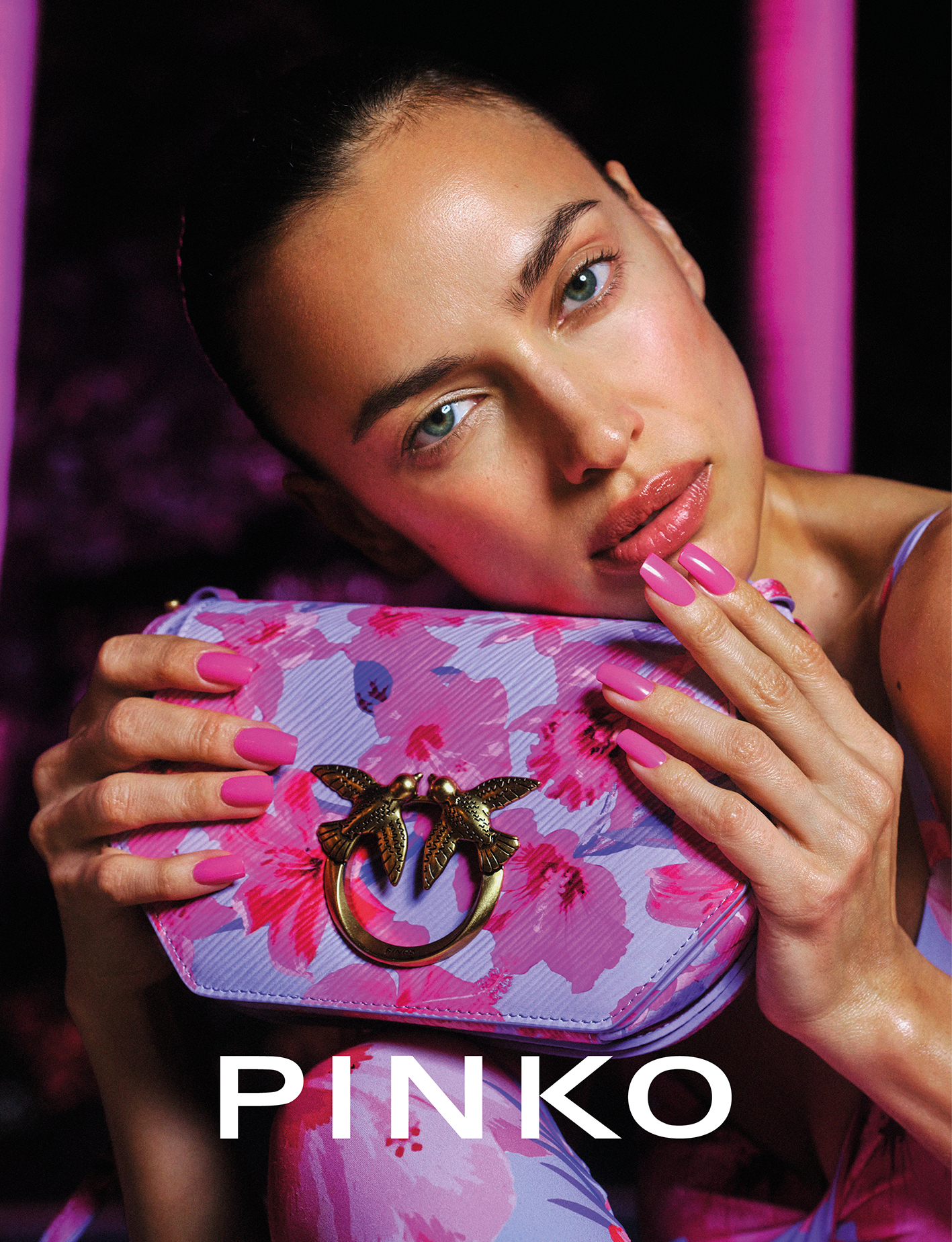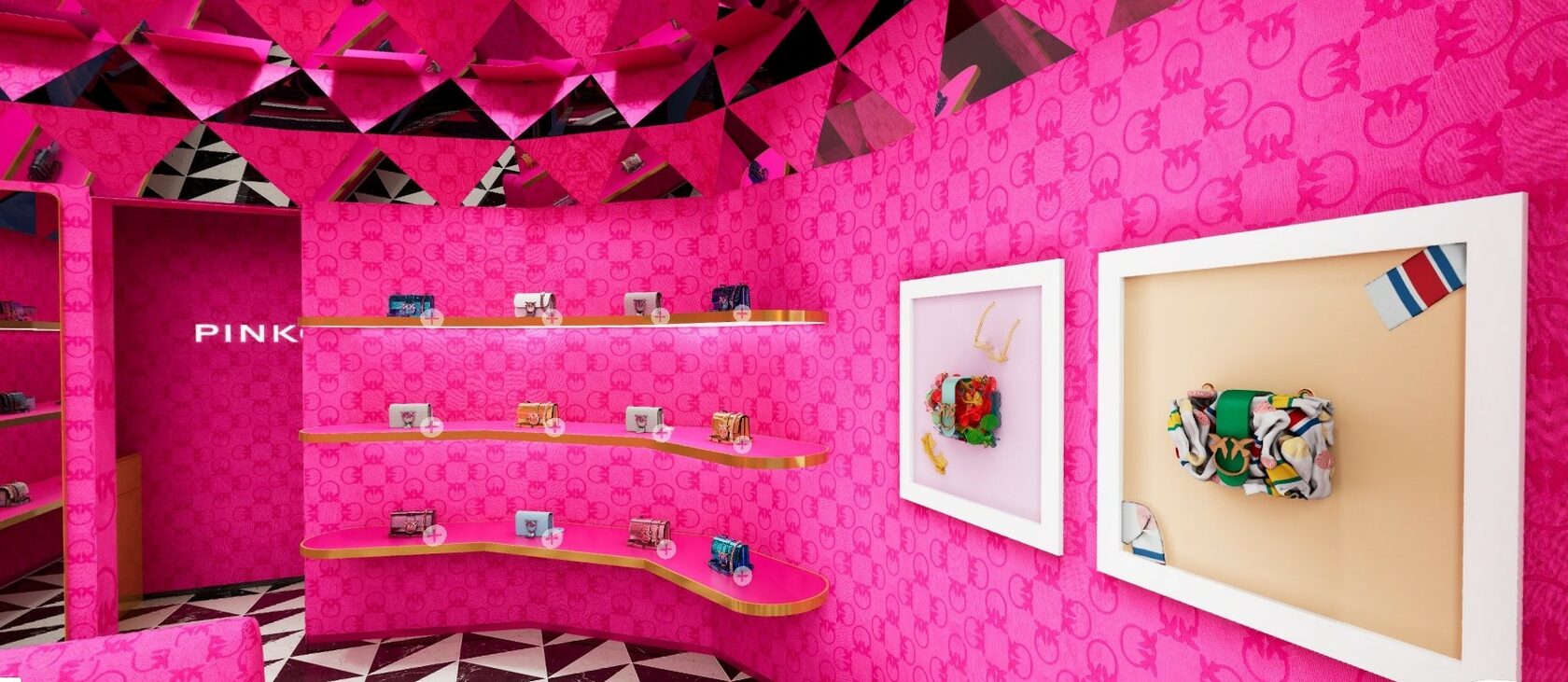PINKO started its journey as a small family business in the late 80s. In 40 years only, they've grown into a multinational fashion conglomerate, running more than 500 retail outlets worldwide. Looks like it is only the beginning of the adventure for Pinko, as they are looking forward to embracing the metaverse.
Meet Marco Ruffa, the mastermind behind Pinko's success story in the Metaverse, Director of Digital transformation, and a leading member of the Metaverse Fashion Council community. After his keynote at the FUTURE OF FASHION WEEKS IN THE METAVERSE conference, hosted by DAO MFC on April, 27, we are more than excited to follow up with questioning Marco.
Meet Marco Ruffa, the mastermind behind Pinko's success story in the Metaverse, Director of Digital transformation, and a leading member of the Metaverse Fashion Council community. After his keynote at the FUTURE OF FASHION WEEKS IN THE METAVERSE conference, hosted by DAO MFC on April, 27, we are more than excited to follow up with questioning Marco.

"Being a part of Metaverse Fashion Council is crucial to build relationship with passionate and mavericks"
You were appointed head of the digital transformation at Pinko almost 2 years ago. Could you tell us about the main challenges a traditional fashion brand could face on its way to digitalization?
There are many challenges that any company needs to face when embracing the path to real digital transformation.
It’s not just about scratching the surface starting a social media presence and trying to push for direct e-commerce sales to become relevant: that’s just what the average management foresee when talking of digitalization.
There’s much more to do, you have to fight on multiple fronts: demolishing the “status quo” mindset can be as hard as change management during any project rollout phase. To be honest I have been lucky enough to encounter in my career Pinko’s founder and CEO Pietro Negra, who has always been a visionary: in 2011 he realized a concept store with no product just touchscreens totems where customers could choose among outfits and order them to be delivered later on in-store rather than easily at home.
When we started discussing my onboarding I felt that special sparkle lighting up my passion for innovation and that’s why we decided accordingly to create a new position in the company changing the role from a more traditional CIO to Digital Transformation Director. We wanted to make the business be a relevant part of the way we embrace technological challenges and I can say after two years we fully reached the turn point.
Apart from the optimization of management costs that digitalization has to offer, how do you think this transformation will impact the buyer experience, specifically for Pinko?
Well, when we think of our customers we have to cover really high standards. Even though we’re not a real luxury brand we tend to move exactly like a luxury: we have locations in the highest streets of luxury like Montenapoleone, Regent Street in London, and Brickell Miami just to mention a few and last but not least the newborn Galleria Vittorio Emanuele, the temple for our hero product Love Bag in the hearth of the luxury world.
In this context, we want to offer a first-class experience and we excel in being a partner in crime to our customers when they come to our store to dress in Pinko and “Play Bold” as our mission statement says.
When it comes to turning this experience into a digitalized version, we believe that our exclusive touch must be translated into a form of community: we believe our customers search for Pinko not just because they need a new outfit or a new bag, but because they want to feel part of our family.
Our effort is to bring this sense of belonging into our digital project, we’ve been running many of them and we’re going to accelerate in the future.
In this context, we want to offer a first-class experience and we excel in being a partner in crime to our customers when they come to our store to dress in Pinko and “Play Bold” as our mission statement says.
When it comes to turning this experience into a digitalized version, we believe that our exclusive touch must be translated into a form of community: we believe our customers search for Pinko not just because they need a new outfit or a new bag, but because they want to feel part of our family.
Our effort is to bring this sense of belonging into our digital project, we’ve been running many of them and we’re going to accelerate in the future.
At the end of 2022, you have launched your first NFT collection. Could you give us an insight about the next NFT collection drop, should we expect new collections, besides Meta Love Bag?
We’re very cautious about the NFT market at the moment: unfortunately, greed from a very un- mature market brought to high speculation and we’re now living in the hashes of what few months was still a promising eldorado.
Acting as a brand, we always wanted to stay aside speculation and our project has never been thought to become a lucrative one. We wanted to use NFTs to create community, belonging, and brand advocacy exactly the way I was describing before.
Moving forward we foresee an evolution where NFTs are to lose their technical meaning and even their name: we may call them in another way and issue them as a “tokenized asset” or better a “digital twin” representing something unique and special for our customers.
Acting as a brand, we always wanted to stay aside speculation and our project has never been thought to become a lucrative one. We wanted to use NFTs to create community, belonging, and brand advocacy exactly the way I was describing before.
Moving forward we foresee an evolution where NFTs are to lose their technical meaning and even their name: we may call them in another way and issue them as a “tokenized asset” or better a “digital twin” representing something unique and special for our customers.

The purchase of a Meta Love Bag gives you access to several privileges online and offline, could you tell us more about online events that you are planning to organize for the Community?
First of all co-creation. We’re working hard to build the fundamentals of our community and we want to bridge our ideas directly to the owners of Meta Love Bags in order to acquire precious feedback and suggestions from a consumer perspective.
Later on the community program will start and we’re going to provide first class services like conciergerie, exclusive access to events and so on.
Later on the community program will start and we’re going to provide first class services like conciergerie, exclusive access to events and so on.
Did the new NFT collection aim at seducing a new audience or introducing the loyal customer base to the digital realm?
One of the goals, maybe the most important one, was to acquire first-hand data about the interest in digital assets by new and existing consumers of the brand.
We’ve seen tons of amazing decks with every kind of sexy promise for the future of digital
realm but in Pinko we like to keep our feet on the ground, make experimentation and gather real insight into our market, and the make further projects for the future.
We’ve seen tons of amazing decks with every kind of sexy promise for the future of digital
realm but in Pinko we like to keep our feet on the ground, make experimentation and gather real insight into our market, and the make further projects for the future.
Pinko is planning to continue experimenting with the Metaverse in 2023. Please give us your vision of the brand-customer interaction in the digital realm.
Interactive gaming is one of the main areas we see as possible evolution for consumer engagement. Unfortunately, decentralised platforms are victims of the speculation we’ve seen and struggle to survive with numbers that aren’t relevant to any marketing strategy or real business plan.
The gaming industry on the opposite has worked silently in the past 10/15 years bringing enormous opportunities for engagement that are still to be focused on by fashion and luxury brands.
And yes unfortunately we have to say that despite the success of some Roblox initiatives (mainly due to kids' adoption) luxury brands need a high control over the realism it can be achieved when presenting digital reproduction of their products: because at the end we still sell apparel, bags and accessories.
This may not be so popular when I say it but I’m sorry I don’t believe in the fully digital asset market. It won’t work, we need things to go out and get noticed in our community of peers and when the party changes to a digital version, it is ok to still dress a Pinko bag but people will ask about the digital twin as a part of their physical purchase.
The gaming industry on the opposite has worked silently in the past 10/15 years bringing enormous opportunities for engagement that are still to be focused on by fashion and luxury brands.
And yes unfortunately we have to say that despite the success of some Roblox initiatives (mainly due to kids' adoption) luxury brands need a high control over the realism it can be achieved when presenting digital reproduction of their products: because at the end we still sell apparel, bags and accessories.
This may not be so popular when I say it but I’m sorry I don’t believe in the fully digital asset market. It won’t work, we need things to go out and get noticed in our community of peers and when the party changes to a digital version, it is ok to still dress a Pinko bag but people will ask about the digital twin as a part of their physical purchase.

How do you see the implementation of generative AI in PINKO's business model?
There are several areas where we’re making experimentation of generative AI: text is the easiest one, if you can submit successfully a set of descriptions to train a model, then you may succeed in having perfectly crafted descriptions of your products based on image analysis.
But it’s not an easy task, don’t believe who says that in a few days the job can be accomplished.
I personally tried to use generative models for image creation. Well, I got impressive results but if you zoom the details there are still hundreds of imperfections compared to a picture.
Hands are “strange” and slightly deformed into unusual positions, clothes do not “wear” or
are impossible to be crafted.
That part is still destinated for mood board or artwork creation. In that last scenario, when you want to leverage generative AI to “describe” something that is untouchable it can make a lot of sense: we’ve been talking of letting AI read your heartbeat and create your “Love Birds” personalization… but it’s a fuzzy idea we need to keep in mind AI is nonempathic nonsensitive and does not have any conscience: how could ever create something comparable to art?
We need still time to make more experimentation.
But it’s not an easy task, don’t believe who says that in a few days the job can be accomplished.
I personally tried to use generative models for image creation. Well, I got impressive results but if you zoom the details there are still hundreds of imperfections compared to a picture.
Hands are “strange” and slightly deformed into unusual positions, clothes do not “wear” or
are impossible to be crafted.
That part is still destinated for mood board or artwork creation. In that last scenario, when you want to leverage generative AI to “describe” something that is untouchable it can make a lot of sense: we’ve been talking of letting AI read your heartbeat and create your “Love Birds” personalization… but it’s a fuzzy idea we need to keep in mind AI is nonempathic nonsensitive and does not have any conscience: how could ever create something comparable to art?
We need still time to make more experimentation.
By opening your first virtual store powered by Emperia, PINKO sets foot in the digital world, ensuring its presence in a potentially new market. Do you consider the already existing gaming community as a potential clientele of yours?
We decided to create a replica of our Galleria store in the digital realm because we wanted to offer the opportunity to a larger audience to visit and “feel” the uniqueness of this specific store. As I said it is the “temple” of our iconic Love Bag into the world of luxury so reaching out to go there and shop for something is not so common on a worldwide scale.
As we’ve been saying many times, metaverse and web3 should represent the extension of
what the web has been nowadays using 3D and creating a more immersive experience. To that end, Emperia has helped us by offering a new way to attract customers,
communicate about a special project and sell unique products: all the bags you can see in the virtual store are limited edition and cannot be purchased anywhere else.
As we’ve been saying many times, metaverse and web3 should represent the extension of
what the web has been nowadays using 3D and creating a more immersive experience. To that end, Emperia has helped us by offering a new way to attract customers,
communicate about a special project and sell unique products: all the bags you can see in the virtual store are limited edition and cannot be purchased anywhere else.
Could you give us feedback on PINKO's participation at the OVER's Metaverse fashion week show? What did you like? What would you want to see improved for the next season?
OVER is doing an interesting job of bridging the physical and digital worlds.
That’s the vision I prefer about the future or possible metaverse. It represents a way of improving real-life experiences by adding an extra touch, with an easy-to-use interface like our smartphones.
When we decided to jump into the event, I was forced to bring a real-life outfit to the digital catwalk. I was quite nervous when ai first saw totally digital creation take the scene, I thought the final effect for Pinko could not be at the same level but in the end, it was very appreciated: by both traditional and new customers, meaning we succeeded in creating a transgenerational message.
Making it “OVER” Milano Duomo was something special, and we had the best of the two worlds: a physical party and an inclusive and exciting digital experience.
That’s the vision I prefer about the future or possible metaverse. It represents a way of improving real-life experiences by adding an extra touch, with an easy-to-use interface like our smartphones.
When we decided to jump into the event, I was forced to bring a real-life outfit to the digital catwalk. I was quite nervous when ai first saw totally digital creation take the scene, I thought the final effect for Pinko could not be at the same level but in the end, it was very appreciated: by both traditional and new customers, meaning we succeeded in creating a transgenerational message.
Making it “OVER” Milano Duomo was something special, and we had the best of the two worlds: a physical party and an inclusive and exciting digital experience.
To conclude, could you give us your point of view on the ongoing merge of fashion and metaverse industries, what should we expect short-term and long-term in the evolution of those industries?
2023 will be a year of experimentation.
I tend to repeat myself when I say that big consultancy firms made a bad mistake in pushing toward the expectations for an eldorado that’s going to be here before the next 10 years.
We don’t have the tech side of the metaverse, we don’t have the killer application, we just have some foundational building blocks thanks to blockchain.
So I expect companies are going to push the brake pedal for a while, making few activations when they feel there’s a real “why”.
The real question is: who is going to survive? After the hype, there’s always a wild selection of companies (in this case startups, platforms, providers) and maybe we will have a different panorama in just 12 months from now.
Things move really fast as we’ve seen with AI so predicting the future is every day harder. But I don’t think my forecast will be totally overwritten.
Will enjoy the journey to see what’s coming next
I tend to repeat myself when I say that big consultancy firms made a bad mistake in pushing toward the expectations for an eldorado that’s going to be here before the next 10 years.
We don’t have the tech side of the metaverse, we don’t have the killer application, we just have some foundational building blocks thanks to blockchain.
So I expect companies are going to push the brake pedal for a while, making few activations when they feel there’s a real “why”.
The real question is: who is going to survive? After the hype, there’s always a wild selection of companies (in this case startups, platforms, providers) and maybe we will have a different panorama in just 12 months from now.
Things move really fast as we’ve seen with AI so predicting the future is every day harder. But I don’t think my forecast will be totally overwritten.
Will enjoy the journey to see what’s coming next
Metaverse Fashion News
READ MORE



